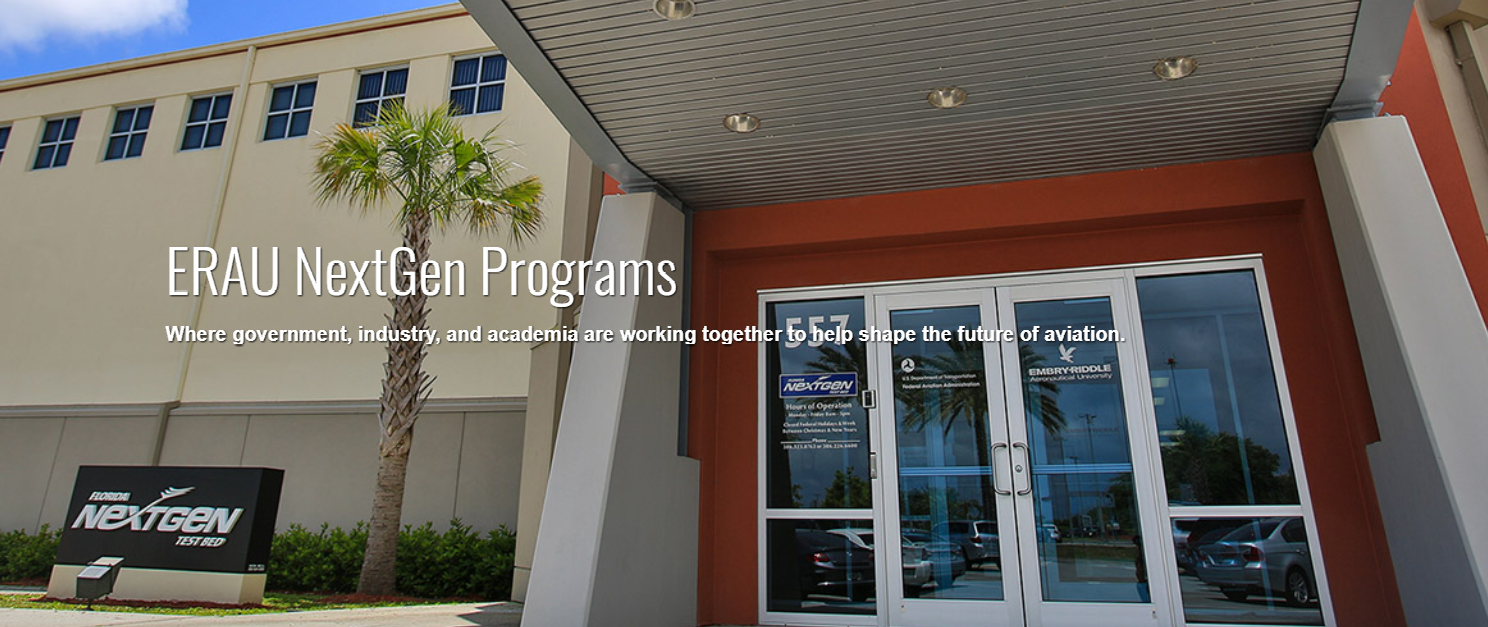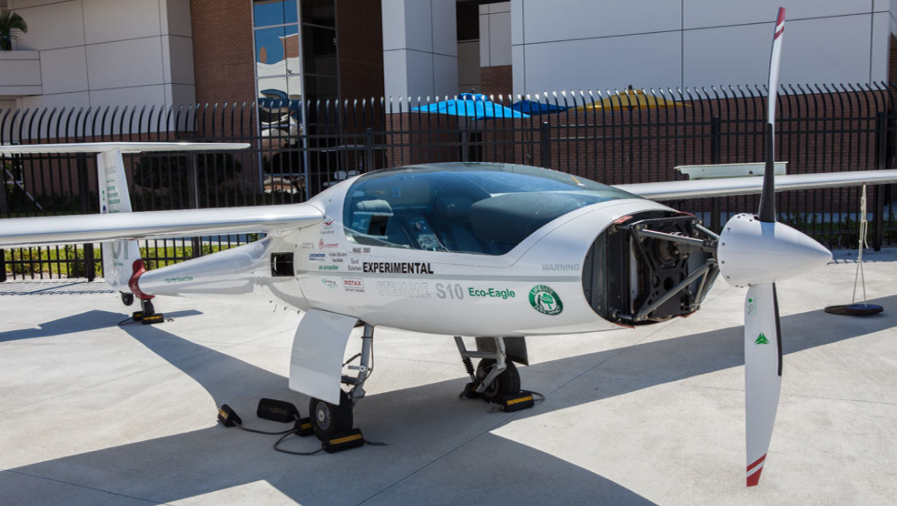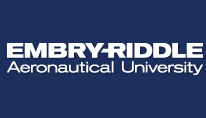Campus Tours
Florida NextGen Test Bed
NextGen was Established in 2011, the Next Generation Air Transportation System, or NextGen, is a Federal Aviation Administration (FAA) initiative to modernize the nation's antiquated air traffic control systems to make air travel safer, more efficient, and more economical.
The FAA has contracted Embry-Riddle Aeronautical University (ERAU) to operate the facility, which is located next to Daytona Beach (FL) International Airport.
To ensure that future air travel becomes safer and more efficient, and to ease economic and environmental concerns, the government signed a law in December 2003 that endorsed a Next Generation Air Transportation System.
NextGen integrates existing technologies, policies, and procedures with newly developed ones to achieve the goals of reducing delays, saving fuel, and lowering aircraft exhaust emissions.
The key to this "modernization" of the National Airspace System (NAS) is an upgrade from an Air Traffic Management (ATM) system that is decades old.
This NextGen overhaul will take ATM from the current legacy systems — inexact ground-based radar and inefficient point-to-point information sharing — to satellite-based technology, which allows for precise tracking of aircraft and a collaborative decision-making process utilizing real-time shared data.
It's an immense, multi-agency undertaking that is slated to continue through 2025 and beyond. And much of the work is being developed, tested, and implemented here in Daytona Beach, FL.

Eagle Fight research center tour
The Embry-Riddle Eagle Flight Research Center (EFRC) serves as the university's Aerospace R&D facility. The state-of-the-art center is equipped to conduct a variety of projects, including:
Experimental flight testing
Aircraft modifications for FAA certification
Design and testing of unmanned aerial systems (UAS)
Development and verification of high-fidelity (up to Level D) flight-data models used in engineering and training simulators
Prototype engineering solutions to advance eco-friendly alternatives in aviation
The EFRC is affiliated with the College of Engineering's Department of Aerospace Engineering and supports the class and individual projects of the university's various undergraduate, graduate, and doctoral engineering students. The students' research and practical efforts are supported by a diverse and experienced faculty, with specialties in fixed- and rotary-wing flight dynamics and control, flight testing, aeroelasticity, electrical engineering, air-breathing propulsion, parameter identification, and aerodynamics.
To aid in a variety of research projects, the EFRC maintains a dedicated experimental Cessna 172, which is equipped with an internal navigation system and flight-testing data acquisition and sensor package.
The EFRC has an experienced staff of professors, staff, and consulting FAA-Designated Engineering Representatives (DERs), pilots, and technicians. Our faculty, staff, and students are experienced with experimental aircraft, certification, instrumentation, and data gathering and analysis.
To help further enhance our students' experience, in addition to university- and program-related projects, the Flight Research Center does research work for commercial customers, including the aviation industry, government, and military. This gives our students excellent exposure to leading aviation and high-technology companies.


